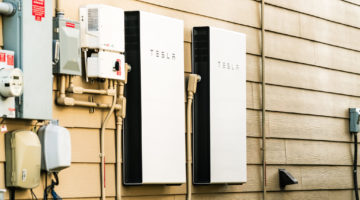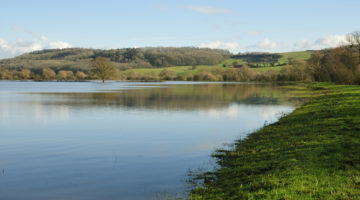
‘Treat the earth well: it was not given to you by your parents, it was loaned to you by your children. We do not inherit the Earth from our ancestors, we borrow it from our children’
I have a lot of time for this proverb; I think it wonderfully captures the necessity for the duty of care that we should have for the world around us. After all, we are here for 70-80 years, which, in the grand scheme of things, is simply the blink of an eye. We are mere visitors on this planet, to hopefully enjoy all that is around us and leave it in reasonable shape for the generations to come that were so kind to lend it to us.
The world is roughly 4.5bn years old (as far as we can tell), and humans, as we recognise them now, have only been wandering around for 200,000 years. So what is the issue? Well, I am ‘visiting’ earth in a seemingly turbulent time; while we push frontiers of science (like this week’s finding of the Higgs boson we also have on-going arguments (to put it nicely) about how religion should shape our lives, disagreements over oil reserves and so forth, some of which have been going for decades, while others are relatively new.
I don’t think my arrival on the planet is the only one that has coincided with unrest. My father was born in 1941, slap bang in the middle of the 2nd World War. I think the lessons learnt from this event in particular, allowed humans to gain a spiritual perspective and wisdom that had perhaps not been present before. It provided us with the ability to draw a line and start afresh, all pulling together to rebuild fallen countries and forge new relationships with people who years before had been considered adversaries.
The challenges facing us 70 years later are obviously very different, but once again we all need to pull together, working to protect the planet albeit in a different way to that which was done all those years ago.
As the current lessees of the planet, we have the chance to pull together in the same direction, all of us, transcending faith, politics and even our own limitations. As Al Gore puts it, we are one of the lucky few generations to be given a ‘Generational mission – the thrill of being forced by circumstance to put aside the pettiness and conflict that so often stifle the restless human need for transcendence; the opportunity to rise’.
So, since we have been given this mission, and we are all in it together, why are we so slow to act? We talk a lot; we have governments who could debate the same topics 24/7. They seem obsessed with setting up enquiries; someone burned their toast – how did this happen? What can we put in place to stop it happening in the future? Maybe there should be a new governmental body?
All these debates and enquiries seem to be disguising what is in effect, simply procrastination. We need to take action; as Martin Luther King put it ‘Procrastination is the thief of time. Life often leaves us standing bare, naked and dejected with lost opportunity’.
Unfortunately, the mission we have been given has a time limit, we are fast reaching a tipping point, one that we won’t come back from; if you go to Co2 Now.org, it illustrates how we are adding CO2 to the atmosphere, roughly increasing by 2ppm / year.
This CO2 and other man made greenhouse gases increase the ‘thickness’ of the atmosphere. As a result it traps the infrared radiation that would otherwise be reflected off the surface of the planet back into space. This results in a heating of the planet, known simply as global warming.
It is now relatively well understood that human activity over the last 100 years has led to much higher levels of CO2 in the atmosphere. A growing population and increased demand for electricity per person has resulted in increased CO2 levels to 397ppm as of May 2012, and in the next year or so we will see this level go through the 400ppm barrier.
The last time this occurred was 15 million years ago according to Aradhna Tripati, a professor at the University of Calafornia (UCLA), when global temperatures were 5 to 10 degrees warmer than they are today. Prior to the Industrial Revolution in the late 19th and early 20th century, the carbon dioxide level was about 280ppm.
Obviously these readings ignore the estimated 48% of CO2 we have released into the atmosphere as a result of burning fossil fuels that have been absorbed by the oceans since 1800. Every day the oceans are thought to absorb an additional 22 million tonnes of CO2, which is approximately 1/3 or our daily output. This CO2 is changing the chemistry of the water, making it more acidic. The acidity is affecting the growth of coral, which use carbonate ions in the sea and prohibits the development of shell dwelling organisms living in the sea.
No one yet has been able to intrinsically link climate change with warming temperatures & less predictable weather. However the patterns do fit; glaciers melting, nine of the ten hottest years on record since 2000 (records began in 1880), increased flooding across the world and the list goes on.
Our mission, should we choose to accept it, should be a global effort to combat climate change. We have the technology to allow us to do just that, we can capture carbon, and make useful products (not just store it), we can produce clean electricity, using renewable sources such as wind, solar, geothermal, hydroelectric and new techs that are being developed all the time.
We need less procrastination by our Governments; someone bold enough to make the big calls and implement new legislation to get the ball rolling. Legislation is present now, but we need to go bigger, brasher and better.
Now is the time for a unified generational mission so that our kids and their kids can enjoy the world that they have so kindly lent to us. After all, the actions that we carry out now will have an impact that lasts well beyond our lifetime.
As always, thanks for reading – and let us know your thoughts in the comments box below.












I really enjoyed reading this article because it aimed to take readers out of the context of our rather selfish consumer age and served as a gentle reminder that there are more serious, almost spiritual, issues to consider urgently. Namely, we need to begin to think more collectively and less individually; something that is almost counter-intuitive in today’s global mega-cities. This piece also put into perspective the smallness of our lives. While we always seem to justify our own various destructive environmental behaviour, we need to remember that everything we do, from taking yet another flight to buying yet another pair of shoes, actually has some profound consequences. Thanks for this!
Chere – nicely put. Changing individual behaviour remains absolutely key to reverse the gears and get the planet back on a sustainable trajectory.
Fantastic article, and something we should all remember. Not only are we here for a really really short time, we must use that time well. Small step by small step is the key.